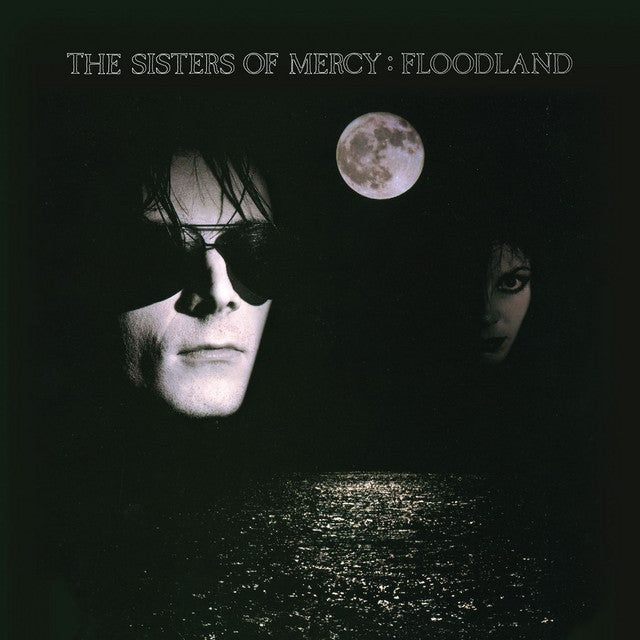The Sisters of Mercy - Floodland
The Sisters of Mercy - Floodland
Couldn't load pickup availability
NEW!/SEALED
2015 REISSUE by MERCIFUL RELEASE
After the release of the Sisters of Mercy debut studio album First and Last and Always in March 1985, frontman Andrew Eldritch intended for them to record an ABBA cover as a single, and tried to hire Jim Steinman as a producer. Eldritch originally contacted him when the ABBA song "Gimme! Gimme! Gimme!" (1979) was part of the band's setlist. Steinman was interested in producing the cover version, but was too busy at that time. Shortly afterward, the Sisters of Mercy disbanded.
After what was dubbed the "Sisterhood fiasco" by Sounds, Eldritch decided to continue under the name the Sisters of Mercy, feeling as though doing so would improve the name's reputation after the previous fallout. He also thought that it would have been nonsensical to change the name, as he still wrote songs the same way as before. Eldritch, who in 1985 first moved to Bramfeld and then to St. Pauli, began to compose a new album while in Hamburg, under the Warner Elektra Atlantic label. The demos for the album were mainly recorded with a Casio CZ-101 synthesiser, acoustic guitars and a new drum machine. At the time, Eldritch was attempting to find a MIDI drum machine of a modest price that featured a "tighter snare drum" sound.
The music of Floodland was described as a mix of gothic rock and dark wave. In contrast to the Sisters of Mercy's previous album, First and Last and Always, which had been recorded in a conventional way, Floodland was pieced together on a computer that used sequencers to help. Eldritch worked on the recorded parts with a Voyetra Sequencer Plus, while a Yamaha SPX90 was used as an effects unit and the parts were saved on a Compaq Portable 286. The guitars were played by Eldritch himself, apart from the solo on "This Corrosion", which was played by Steinman's friend Eddie Martinez. The drum sounds on the album were sampled together from various drum machines with an Akai S900. The tom sound was from an Oberheim DMX, which had previously been used on First and Last and Always. The other drum sounds were from a Yamaha RX-5. The track "1959" features only the sound of a piano, but was pieced together with a sequencer by Eldritch and played without an actual piano.


